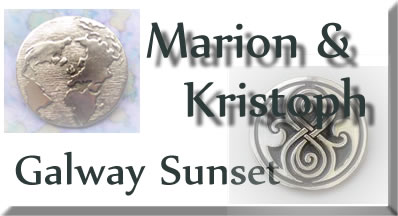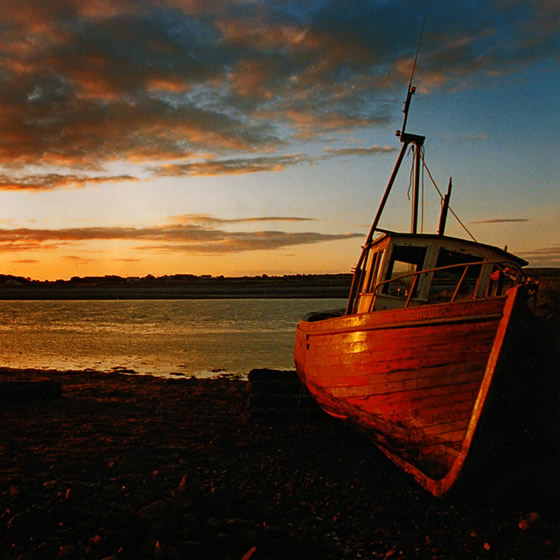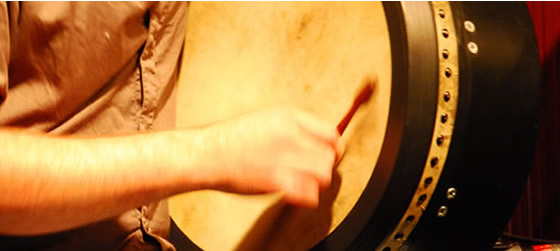

Rika and Marion both smiled as Kristoph softly sang a song about the sun going down on Galway Bay. The sun had just gone down on the bay in question, on a summer night in 1952, chosen for no other reason than that 1952 was a particularly warm and sunny summer. It had certainly been a splendid sunset, anyway. And it had many other sunsets to live up to.
Marion thought about some of the sunsets she had witnessed with Kristoph at her side. The first one had been at Whitby, when they watched the sun go down behind the old Abbey and then sat and waited for it to rise again out across the North Sea. Then there had been a warm, balmy sunset in Nice, her favourite French beach resort, and once they saw the sun go down over New York from the top of the Empire State Building. Then the solstice sunset at Tywyn, and many times they had stood by the Pierhead and seen the sun set over the Mersey estuary. And that was only the Earth sunsets. Then there was the Eye of Orion, and many sweet nights at Hillary’s lighthouse retreat on Haollstrom, and countless times the Gallifreyan sun had set and risen with them as silent witnesses to its loveliness. Sunsets and sunrises seemed to have a particular appeal to Time Lords, she thought. Perhaps it was something in their blood.
“It is the change of atmosphere, from night to day, day to night,” Kristoph told her. “Just as our favourite Gothic novelist noted in his account of Jonathon Harker’s days at Castle Dracula. To beings like Remonte and I, who feel every moment of time instinctively, these moments are all the more special.”
“Most especially when we share the moments with our sweethearts,” Remonte added as he held Rika closer and stole a kiss from her. That made Kristoph turn to kiss Marion lest she felt left out.
“We seem to get kissed by our sweethearts more often when we’re together,” Marion noted. “You two seem to be in competition to prove your love with the most kisses.”
“It is a dead heat,” Kristoph assured her. “We’re both utterly, completely, in love with our women. Only I have the advantage. Because I'm loving two of you at once. My darling wife and our child. When I kiss you, I kiss her. When I hug you, I am hugging our baby, too.”
He hugged her then, before they walked up the rise from the sea shore. There were no street lights to guide them, but the moon was full and they found the lane that cut through the undulating heath between the village and the sea shore. The village was called An Ceathrú Rua for the red heather that grew on that heathland. In daylight, when they walked down, they had been delighted by the sight of the soft pinkish-red colour all around them. They were all reminded of the Red Valleys of Gallifrey. Marion thought that was why Kristoph had chosen this place for them to spend another quiet weekend offworld, away from the society luncheons and soirées and dinner parties that Marion was finding so tedious lately and Rika found no pleasure in at all. They were both happy here, enjoying the peaceful Irish countryside and the promise that they would stop off in Liverpool on the way home and pick up Lily, who was having her own offworld weekend with Li.
“Is that music?” Rika asked. “It’s beautiful. But where is it coming from?” They all listened. She was right. Music drifted across the red heather. Fiddles, flutes, and some kind of drum with an insistent beat. Traditional Irish music.
“A caelidh,” Kristoph said with a smile. “I wonder if they would welcome four strangers among them on this sweet summer’s night?” He looked around, finding the direction the music was coming from and with his Gallifreyan eyes he spotted the lights in the distance. He took hold of Marion’s arm and guided her as they struck off from the lane along a mere rut of a path worn across the heath by the fishermen from the village taking a short cut to the shore.
A caelidh it was. But it was not in any house or hall. Rather, the people had made a dance floor out of a clear piece of ground in front of the public house called Realt na Maidine – which the strangers all translated as ‘The Morning Star’. Torches on top of long poles lit the scene and the musicians were upon a flatbed wagon propped up at the front where the traces were for the horses. The door to the public house was wide open, and beer and porter were being served, at least for the next hour and a half before the village policeman would see that the licensing laws were upheld.
There was a break in the music as the four strangers arrived. Kristoph stepped forward and nodded politely to those who looked around at them.
“Blessings be upon this gathering,” he said in a perfectly pronounced local dialect of the Irish language. “May I ask the cause of the celebration?”
“It is the wedding feast and the American Wake for young Fiannachta and his bride, Maire, daughter of the landlord O’Neachtainn,” he was told. The newlywed couple, dressed in their finery, were sharing a glass of porter as they waited for the music to restart.
“Ah,” Kristoph said. “Then blessings be upon their union and their future life together.” And he went to shake hands with the two. Marion saw him put his hand in his pocket before he reached them and she knew he had quietly given them money, a wedding gift from him. Then he found a half guinea coin and threw it to the landlord, to pay for drinks all round. That was enough to see them all welcomed to the party. The music started up again, and it was a gentle waltz with the fiddles tugging at the heartstrings. Kristoph and Remonte took their ladies onto the makeshift dance floor together. Marion sighed blissfully in her husband’s arms. She looked at the newlywed couple, dancing together, too. She looked at Remonte and Rika, glowing with love. Between the six of them they represented three wonderful stages of joy. She and Kristoph, already married for more than half a year, and with their hopes pinned on the life growing within her, young Fiannachta and his new bride with their honeymoon night growing closer by the minute, and Remote and Rika with their Alliance only a few weeks away.
“What’s an American Wake?” she asked Kristoph. “Isn’t a wake something to do with funerals? I’ve heard the word used among Irish people in Liverpool as that…”
“It means that the newlyweds are emigrating. Probably first thing tomorrow. It’s a common enough thing in these days. There isn’t much work to be had in rural places. If Fiannachta is a younger son he wouldn’t stand to inherit any land, and Maire’s brother would have the public house. In America they have a chance of work, and prosperity if they are prepared to make a go of it. It’s an exciting time for them. It will probably be the first time either have left the county they were born in. But it’s sad, too. It takes a long time to reach America by boat, and it’s expensive. They wouldn’t be able to afford to visit home for a long time, and people here certainly couldn’t afford to visit them. So as far as their friends and relatives are concerned, it is almost as if they are dead to them from here on. Thus the word ‘wake’.”
“Oh.” Marion wasn’t sure what to make of that. She had been happy for the newlywed couple, knowing the joy of being with the man she loved. But was this a happy event after all?
“Yes, it is,” Kristoph assured her. “It’s the best chance of a future they have. And they have embraced it with both hands. Just like you did when you came across the galaxy to be with me. They’re going to the ‘New World’ and a new life in America. You came to a whole New World for me.”
“We’re the same, then. But I knew I could come home if I asked you. And besides, if I had this many people who would miss me… I wonder…”
They came to sit on a bench after the dance and Marion looked around at the wedding guests and thought about the decisions she had made in her life. It had been hard for her to leave Earth. But she had gone to be with the man she loved literally more than the world. She had nothing to lose. She had no family on Earth who would mourn her as ‘dead’ to them. She had had no reason not to go to her New World. And yes, it had been the right decision. If she doubted it for a moment, then the tiniest flutter in her stomach as she rested reminded her. She put her hand over the place where she swelled just a little already. She felt pregnant and she loved that feeling.
The slow set ended and a different style of music struck up. Kristoph put his arms tightly around Marion and held her as the dancers, including the newlyweds and Remonte and Rika, who quickly learnt the steps, whirled around the floor madly. This was called a ‘reel’, Kristoph said. And it was definitely one they were going to sit out. Marion sipped lemonade and Kristoph enjoyed a glass of porter – what she knew branded and packaged as Guinness. She leaned her head against Kristoph’s chest and listened to his double heart beating, and realised that the sound was being echoed in the music. The rhythm of the tune was played on a traditional hand held drum called a bodhran, which was played with a short, double ended stick tapped very quickly at each end. And it was the rhythm of a Gallifreyan double heartbeat. It was the sweetest sound in the universe to her. The sound of her husband’s hearts, the sound of her unborn child’s hearts. It was a sound of contengtment.

 |
 |
 |